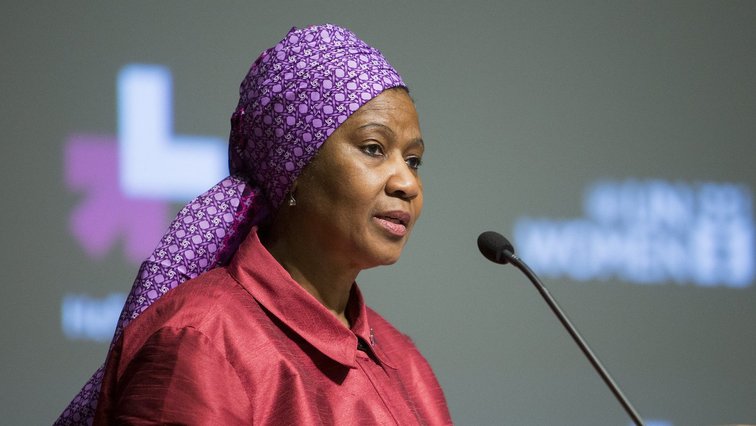Global leaders are calling for ambitious solutions that will lead to a women-centered recovery from the COVID-19 pandemic, as a key building block to an inclusive and resilient response.
This was among the messages delivered by key stakeholders at a virtual Women Political Leaders Summit that seeks to elevate Women Political Leaders as determinative of the “new normal”. The summit takes place a week ahead of the Gender Equality Forum in Paris, France. The forum seeks to reinvigorate progress on women’s equality that has been uneven at best – and slow more generally – since the World Conference on Women adopted the landmark Beijing Platform of Action in China 26 years ago.
The message is clear and the evidence stark – the COVID-19 pandemic is threatening the hard-won gains since Beijing in an environment where long-standing exclusion and discrimination of women has further undermined the response and recovery.
“In just about a week I look forward to the Generation Equality Forum in Paris where this conversation will build on Mexico and crescendo to reinvigorated commitment and transformative action to leave no one behind targeting six critical areas for transformation – ending gender-based violence, security economic justice, bodily autonomy, climate justice, technology and innovation for gender equality and promoting women’s movements and women’s leadership,” says Amina Mohammed, UN’s Deputy Secretary-General.
Gender gaps worsened by COVID-19 pandemic
UN Women warns that the economic and health impacts of COVID-19 have exacerbated existing gender gaps, placing modest gains made over the last quarter-century in peril – with women’s leadership becoming a pressing concern as Executive Director Phumzile Mlambo-Ngcuka explained.
“We now need to make sure that our parliaments are not on global average 25%. We need to make sure that our local governments do not have a limited number of women, we want to make sure that our cabinets do not have an underrepresentation of women, we need you to take action, we need you to take this action now,” says Mlambo-Ngcuka.
Making women’s leadership a preference is viewed as an urgent imperative because the data points to its benefits on all of society.
“In government, it leads to greater investments in social protection, the environment and climate justice; in peace negotiations, it’s linked to more durable solutions and in the private sector to better business performance. Yet, despite all the evidence, women in leadership positions still face resistance, suspicion and even hostility based on stereotypes about their capabilities and their place in society,” says Michelle Bachelet, High Commissioner for Human Rights.
Working on a story on women’s leadership, this factoid illuminates the problem. WHO DG @Tedros tell Women Political Leaders Summit that while women make up 70% of the health workforce, only an estimated 25% of leadership roles in healthcare are held by women.#sabcnews
— Sherwin Bryce-Pease (@sherwiebp) June 21, 2021
Women in parliaments
Women currently hold just 26% of over 35 000 parliamentary seats across 156 countries surveyed or a mere 29% of senior management roles globally. Amid a backlash about women’s rights and a shrinking civil space in many countries, the call for political and financial support for feminist leadership is growing – including through quotas which is an approach embraced by European Commission President Ursula von der Leyen.
“Some of you might know that for the first time in history, the European Commission of which I have the honour to be president, has as many female members as male. This was long overdue, we now want to repeat this success at the middle and senior management levels. Women already hold more than 40% of the top positions in the European Commission. I have set a target of 50% by the end of 2024 because our democracies are stronger when women are involved as equals – not because women are better, but because we are different,” says Von der Leyen.
Also addressing the Summit, World Health Organisation Director-General Dr Tedros Ghebreyesus shared a statistic that while 70% of the world’s healthcare workforce was made up of women just 25% of leadership roles in the same sector are held by women. Calling for Gender Transformative policies within healthcare and other sectors to address such blatant inequities.






